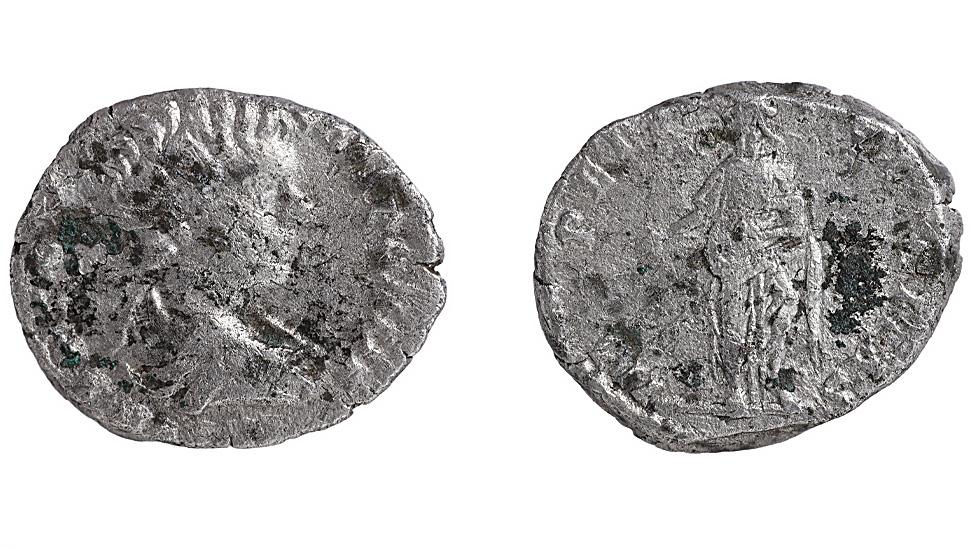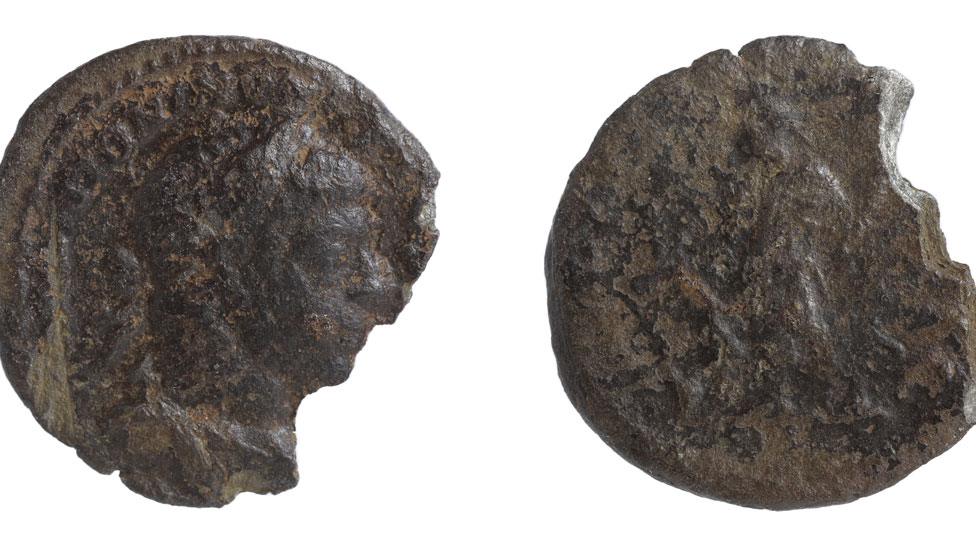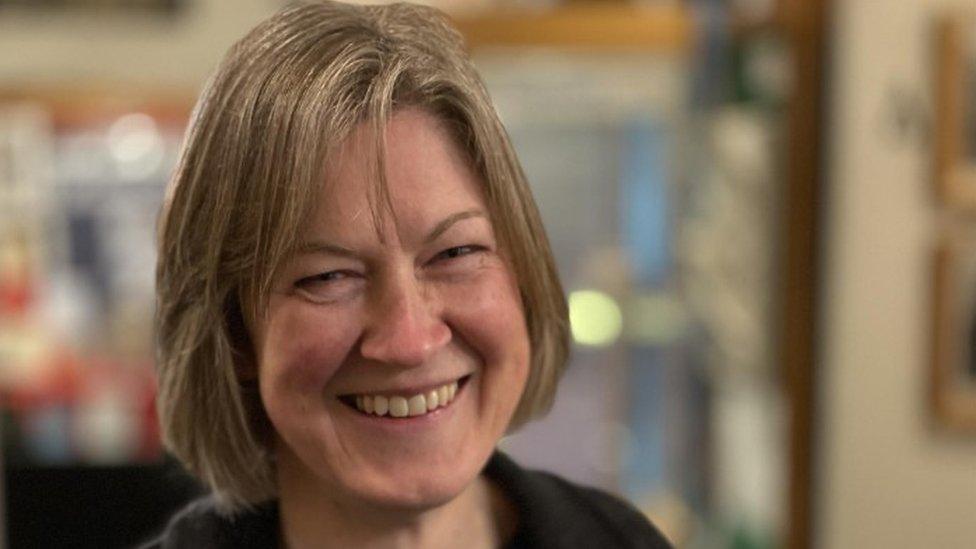Coin finds linked to 1970s Roman hoard unearthed at Scole
- Published

The first denarii dates to AD196-8, the reign of Marcus Aurelius Severus Antoninus Augustus, known as Caracalla
Two silver coins found at a housing estate have been linked to a Roman hoard unearthed in the 1973.
The cache of 46 coins was revealed by an archaeological excavation ahead of the build at Scole, Norfolk.
A detectorist, who lives on the estate and had tried to find more coins for years, lent his metal detector to a novice friend. He promptly discovered two denarii.
Archaeologist Helen Geake said: "We never know when more could be found."

The second one is from the reign of Caesar Marcus Aurelius Antoninus Augustus, known as Elagabalus, and dated to AD218-22
Dr Geake, who is Norfolk's finds liaison officer, said: "The detectorist had searched all his neighbour's gardens but never found a thing.
"He told a friend, who joked, 'I bet you I could', swept a garden and found the denarius."
Seven of the coins found in 1973 were denarii and as three were found in close proximity, they were declared a hoard.
Scole was known to have a Roman-British settlement, external, and is close to a Roman road, but archaeologists were only able to excavate a 10th of the site.

Helen Geake urged the estate's residents to report any Roman coins found in the decades since it was built
Dr Geake said: "In those days, excavations were done in negotiation with the developer.
"Today, the developer would pay archaeologists to do the whole lot, but back then it was public money and only a small amount was found."
The hoard is part of Norwich Castle's collection and the two latest finds will join it after the finder and landowner donated them to the museum.
Dr Geake said they had told her Roman coins are occasional finds in the estate's gardens and she appealed for people to report them.
"You can tell something about the site just from the coins, it's importance and what sort of activities are happening," she said.
"If we find too far too many, then it's more likely to be a temple site as they would throw coins for good luck."
The coins were declared treasure by Norfolk Coroner's Court.

Follow East of England news on Facebook, external, Instagram, external and Twitter, external. Got a story? Email eastofenglandnews@bbc.co.uk, external or WhatsApp us on 0800 169 1830